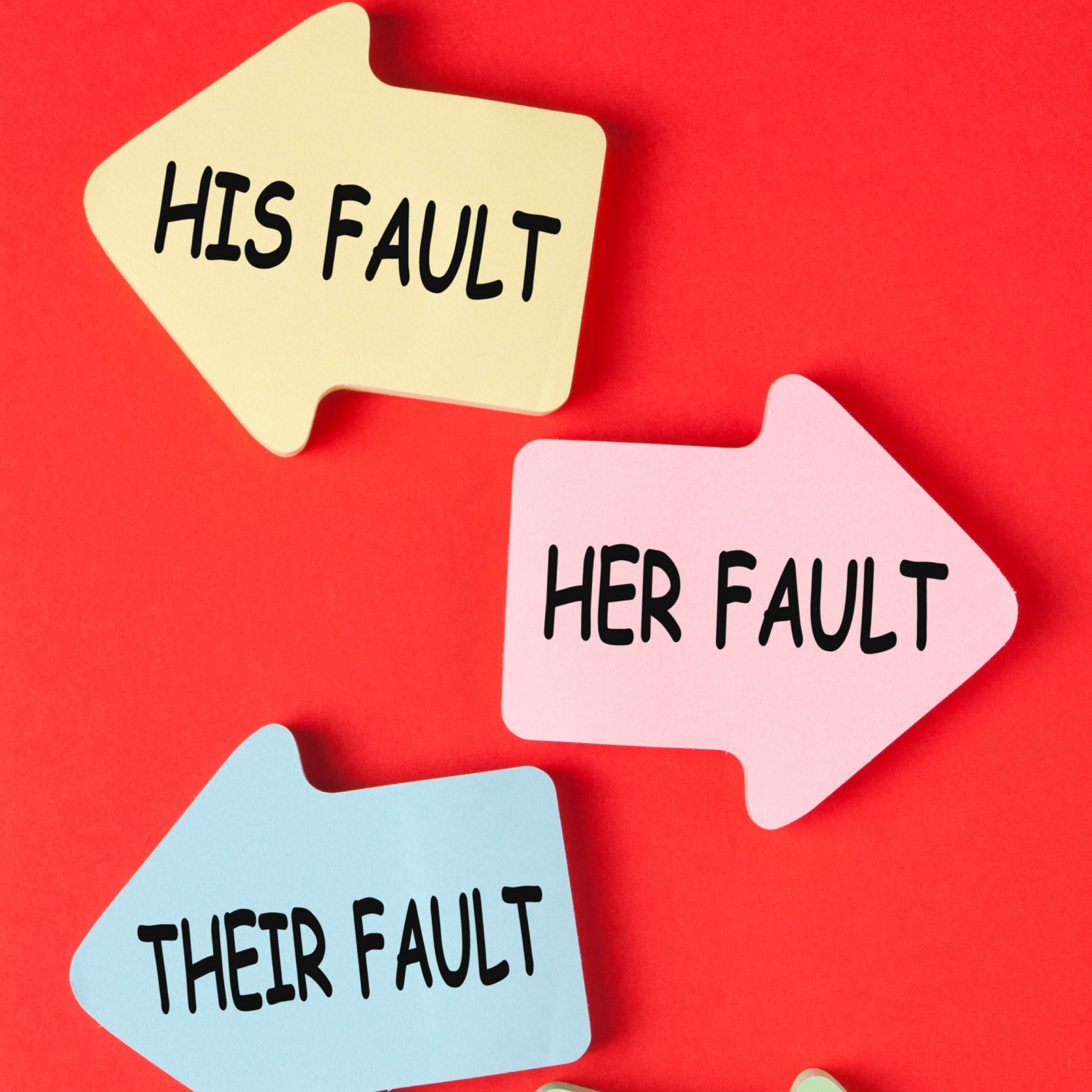Stop Blaming. Now.

Blame is a curious thing. It can show up as outrage’s wingman. It can disguise one’s own culpability. It can also be a wall that shuts out responsibility. It can be a seductive, simplistic bypass around complex issues that allows individuals and groups to don a mantle of victimhood whilst sidestepping the discomfort of self-reflection and, of course, responsibility.
Blame is something we human beings do easily. Too easily.
We live in a culture rife with blame. It shows up in leadership at the highest levels of government and at similarly high levels inside companies, non-profits, and other institutions.
I imagine Harry Truman – “The Buck Stops Here” famously displayed on his desk – rolling over in his grave right about now.
Placing blame can have the effect of a rallying cry, a call to seductively simplistic solutions to a litany of complex problems. Blame can maintain outraged momentum for long enough stretches to do real damage, and real-world harm taken to extremes includes war and yes, genocide.
Eventually, though, when the land is rid of the blamed, when that enemy “other” is banished, the inevitable question of “what now?” must be faced.
A phenomenon that occurs in some circles of men is blaming feminism for many of this era’s woes and evils – including the current crisis state of boys and men.
Let’s be clear about one thing up-front: there is indeed a very real crisis happening with boys and men. Soaring rates of male loneliness, depression, and deaths of despair – to say nothing of dropping rates of college enrollment for men – are all very real, extraordinarily challenging circumstances.
On the women’s side it’s worth noting that, as a group, teenage girls ain’t exactly celebrating La Dolce Vida right now. Depression, loneliness, sexual violence, suicidal ideation, and suicide are all on the rise.
These crises are wake-up calls, not contests.
Back to men blaming feminism… while finger-pointing is tempting, it’s unlikely to get us anywhere beyond agitation and separation.
Apart from bailing on self-reflection and responsibility, a big, very real danger is that faulting the feminist movement gets interpreted as laying blame for one’s own swirl at the feet of virtually any and every female-bodied human being.
Things are weird and tough enough as they are. Those distorted messages are already sending young, crisis-ridden men, including impressionable internet-savvy tweens, into the welcoming arms of any number of misogynistic, wrong-headed, charismatic online influencers.
This blame stuff does not bode well for anyone’s present or future.
Feminism, just like any other broad social movement, has attracted its share of outspoken extremists, including those who have dished out plenty of loud, broad-brush stroke, anti-male rhetoric chock full of blame.
If you find that stuff triggering and alienating, why would you think turning it around would somehow make it a viable tool in your own hand?
Is the feminist movement worthy of being viewed with a critical eye?
Of course. Observation, curiosity, critical thinking, and questioning are always good things to do, especially when dogmas and/or extremes might be lurking about.
Should we all be mindful of our own language, remaining vigilant about the impact of the words we write and speak?
You bet.
What’s most useful, in my world at least, is being ever on the lookout for opportunities to take responsibility – and action – in good ways. For the benefit of all and with harm to none.
Stop blaming…
And if there’s outrage, find something more useful, dare I say generative, to do with its energy.
That’s what the world needs.